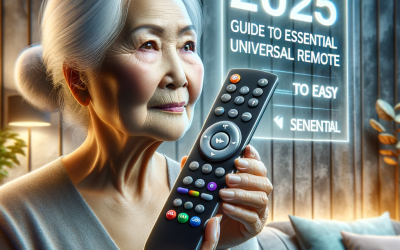Ah, the joys of aging. If there’s one thing each passing year seems to rob from my dear parents, it’s their ability to hear me explain how Netflix works for the hundredth time. Truth is, hearing loss is just part of the deal for many seniors—and by “deal,” I mean the raw deal our ears strike with Father Time. Thus, the quest for the Best Hearing Aids for Seniors: Must-Have Affordable Choices begins.
Choosing the Right Senior Hearing Aids
Before we dive into brands and features, let’s tackle what makes senior hearing aids a good fit. For most seniors, simplicity, clarity, and comfort rank at the top. Let’s not forget affordability—because who doesn’t love a good bargain?
- Simplicity: Menus that require an IT degree aren’t the best choice.
- Clarity: What’s the point of hearing if it sounds like a tin can underwater?
- Comfort: If it feels like a marshmallow in your ear, even better.
- Affordability: We aren’t all Warren Buffet. Keep it friendly on the wallet.
Let’s proceed with what makes hearing aids stand out and why these attributes are essential for our senior friends. If you’re overwhelmed, don’t worry—comparing options is my second favorite hobby after napping.
Understanding Types of Hearing Aids
You might think picking a hearing aid is as simple as choosing vanilla or chocolate. In reality, it’s more like navigating a buffet of new-age flavors.
- In-the-Ear (ITE): Ideal for mild to moderate hearing loss. Fits snugly inside the ear.
- Behind-the-Ear (BTE): Great for all hearing loss levels. Consists of a small case behind the ear connected to an earpiece inside the ear.
- Over-the-Counter (OTC): Recently gaining popularity, these don’t require visits to audiologists and tend to be more budget-friendly.
Each type has its strengths, like BTE’s versatility and ITE’s discreetness. The rest of this article will focus on how they stack up directly.
The Rise of Bluetooth Hearing Aids
Bluetooth hearing aids are a game-changer. At first, I thought, “Bluetooth? Like the thing that connects my car to my phone?” Precisely! These devices wirelessly connect to smartphones, TVs, and other tech gadgets. It’s like being able to stream the game right into Dad’s ear without Mom hearing a thing.
- Pros: Hands-free phone calls, direct audio streaming, and multi-device connectivity.
- Cons: Complexity for less tech-savvy users, potential for higher cost.
For those seniors who’ve embraced technology (I’ve accepted it; Mom hasn’t), Bluetooth options are a fantastic way forward.
Best Affordable OTC Hearing Aids
Here’s where the magic happens: OTC hearing aids. With the FDA’s recent green light, these are a popular and more affordable option. When choosing, keep these factors in mind:
- Sound Quality: Make sure they don’t distort or miss nuances.
- Usability: Easy controls and setup are key.
- Battery Life: Now, who wants to charge these things every day?
For a practical comparison, consider this table summarizing a few recommended options:
| Brand | Type | Features | Price |
|---|---|---|---|
| Zounds | BTE | Bluetooth, Rechargeable | $600 |
| Eargo | ITE | Comfort Fix, Invisible Design | $1,500 |
| Audicus | OTC | User-Adjustable Settings, Long Battery | $800 |
The Zounds option provides impressive features for its price, while Eargo offers a more sophisticated design for those seeking stealth. Audicus represents the burgeoning OTC market, giving flexibility without breaking the bank.
Actionable Tips for First-Time Buyers
Let’s take a moment for some practical advice, honed from personal experience and way too many hours in waiting rooms:
- Get a Hearing Test: You’d be surprised how much we aren’t hearing.
- Try Before You Buy: Not every hearing aid feels or sounds the same.
- Check for Warranties: Peace of mind is knowing you’re covered if something goes astray.
- Consider Tech Levels: Not everyone needs Bluetooth or rechargeable options, but it’s worth considering if you do.
FAQs About Hearing Aids for Seniors
Time for a quick FAQ session to wrap things up:
1. Do I need a prescription for OTC hearing aids?
No, OTC hearing aids can be purchased without a prescription. However, if you’re unsure about your hearing needs, consulting a professional is always a good start.
2. Are Bluetooth hearing aids worth the investment?
If you’re tech-savvy and love seamless connectivity with devices, Bluetooth hearing aids can significantly enhance your experience.
3. What should I do if the hearing aid isn’t comfortable?
Return it, or consult with your audiologist for adjustments. Comfort is key!
So, there you have it—navigating the wonderful world of hearing aids without the hot air. Remember, clear hearing is just a smart decision away, even if the next step is deciphering Mom’s instructions on holiday turkey cooking!




0 Comments